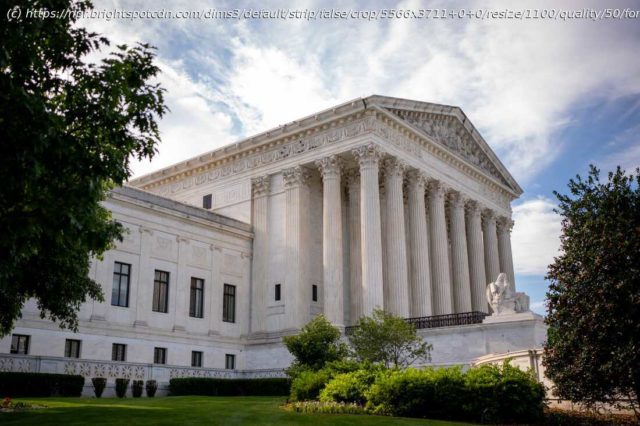The order marks a win for the Trump administration, even if temporary, and it could well be a harbinger of things to come as the administration continues to clash with federal courts.
The U.S. Supreme Court on Monday backed the Trump administration in its efforts to continue deporting what it says are Venezuelan gang members. In an unsigned order, the court’s conservatives threw out a lower court order that prevented the administration from continuing its deportations under the controversial Alien Enemies Act of 1798.
The order finds that the men challenging removals under the Alien Enemies Act should have contested their arrests in the districts they were detained through individual habeas petitions, which is how someone can legally argue they are being unlawfully detained. The initial lawsuit challenging the order instead sought to block removals for all Venezuelans who could have been affected by the Alien Enemies Act.
The order marks a win for the Trump administration, even if temporary, and it could well be a harbinger of things to come as the administration continues to clash with federal courts and assert the executive’s dominance over the other two branches of government.
However, the majority’s order also found that any person subject to removal under the Alien Enemies Act is subject to judicial review, and people must get adequate notice to challenge deportations in court.
« More specifically, in this context, AEA detainees must receive notice after the date of this order that they are subject to removal under the Act. The notice must be afforded within a reasonable time and in such a manner as will allow them to actually seek habeas relief in the proper venue before such removal occurs », according to the majority opinion. The Supreme Court said such petitions must be resolved in the districts where those detained are held.
It’s unclear what the order means for people who were already deported to El Salvador under the Alien Enemies Act, after their lawyers said they did not get enough notice of removal. Justice Kavanaugh penned his own concurring opinion.
Justice Sonia Sotomayor penned a dissenting order on behalf of the court’s liberal justices, joined by Justices Elena Kagan and Ketanji Brown Jackson. Justice Amy Coney Barrett joined for parts of the order.
Sotomayor’s dissent found that the court’s legal conclusion is « suspect », and it rules in the government’s favor « without mention of the grave harm Plaintiffs will face if they are erroneously removed to El Salvador or regard for the Government’s attempts to subvert the judicial process throughout this litigation.






